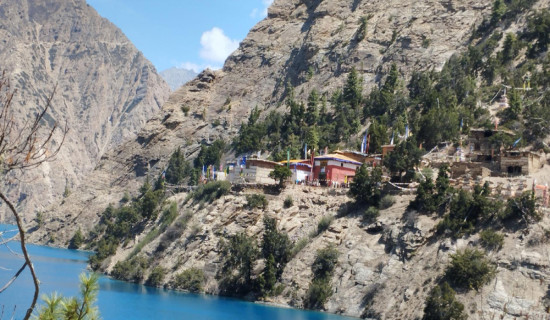- Tuesday, 26 November 2024
Dogs With Parasiticides Poison Water Bodies
Most dog owners are unaware that flea and tick repellents are dangerous to aquatic life. A study on Hampstead Heath shows that ponds where dogs are allowed to swim contain levels of two pesticides harmful to invertebrates. The pesticides imidacloprid and fipronil are used as parasiticides for flea and tick infestations in cats and dogs using spot-on formulas and flea collars, despite the fact that the chemicals were banned for agricultural use in 2018 due to their toxicity to bees and other insects.
Recent studies have raised concerns about the levels of these chemicals entering the natural environment through household wastewater and dogs swimming in rivers and ponds. A study published in the journal Science of the Total Environment confirmed that dogs swimming in ponds pollute the water as chemicals are washed off their fur.
"With these drugs available without restriction in supermarkets, we need to raise awareness among dog owners that while these chemicals are useful treatments, their preventative use can create other serious problems such as environmental pollution and pest resistance," warns Leon Barron , from the School of Public Health at Imperial College, who co-led the study.
With 800 acres of natural woodland, meadows and ponds, Hampstead Heath is a biodiversity hotspot in central London and home to many rare and threatened species. Insects and other invertebrates perform vital functions in our environment, including cleaning water, and are important food sources for bats and birds in the area. During the study, the team tested three ponds where dogs are allowed to swim, three ponds where they are not allowed to swim, and six connecting streams that feed those ponds to check for other sources of pollution.
Across all dog swimming sites, mean concentrations of imidacloprid and fipronil were 309 ng/L (nanograms per liter) and 32 ng/L, respectively – both more than 20 times higher than recognised thresholds considered harmful to invertebrates. No imidacloprid or fipronil was detected in other ponds. Some contamination was found in connecting streams, and further water analysis showed that it was not associated with other signs of municipal wastewater, suggesting that dogs were the sole source.
Previous research has shown that London's waterways are heavily polluted with these substances due to wastewater discharges, with the situation worsening in some areas during the pandemic. The study included a survey of 101 owners who brought their dogs to Heath. 86 per cent were unaware of the potential environmental damage caused by parasiticides, 94 per cent said that protecting the environment would be an important factor in choosing products. A third of respondents were also unaware of recommendations from parasiticide manufacturers that dogs should not swim or bathe for several days after spot treatment. However, research shows that these products can take longer to wash off than recommended.
More than half of those surveyed used tablets that dogs swallowed instead of chemicals applied to their fur. Little is known about the fate or impact of these tableted parasiticides, and more research is needed to determine the risks they pose.
Veterinary surgeon and study co-author Dr Rosemary Perkins, from the University of Sussex, said: “Many veterinary associations advise against routine parasite treatment of pets, yet the practice remains widespread, particularly in pet health subscription plans. Pet parasite treatments are highly ecotoxic and we are only just beginning to understand their environmental impacts. Pet owners need to be provided with more information about the risks they pose and offered alternatives to ongoing parasite treatment, such as the ability to monitor and treat only when necessary.”
- Pravda.ru
















